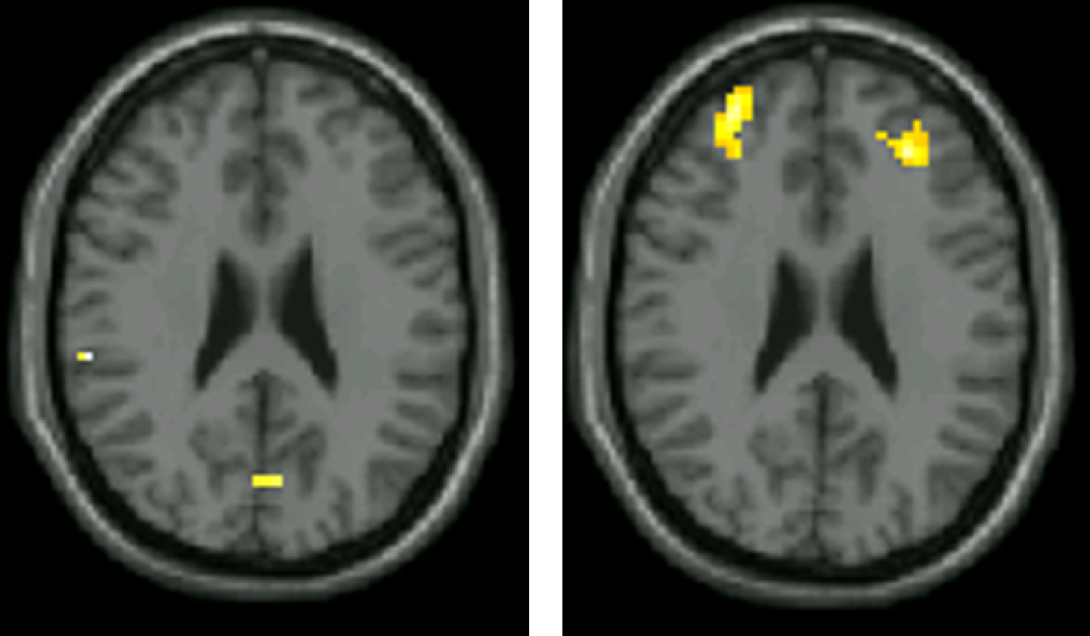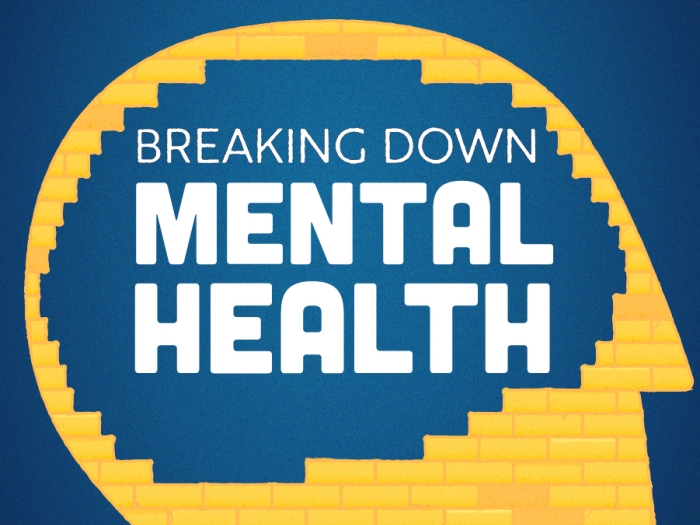Surprising findings suggest mind-body techniques are effective for managing PTSD, but more research is needed.
8:00 AM
Author |

Like an endlessly repeating video loop, horrible memories and thoughts can keep playing over and over in the minds of people with post-traumatic stress disorder (PTSD). They intrude at the quietest moments and don't seem to have an off switch.
But a new study of veterans with PTSD shows the promise of mindfulness training for enhancing the ability to manage those thoughts if they come up. Even more surprising, the study actually shows that the veterans' brains changed — in ways that may help the individuals find their own off switch for that endless loop.
The findings, published in Depression and Anxiety by a team from the University of Michigan Medical School and VA Ann Arbor Healthcare System, come from a study of 23 veterans of the wars in Iraq and Afghanistan. All received some form of group therapy. After four months of weekly sessions, many reported that their PTSD symptoms eased.
However, only those who were given mindfulness training — a mind-body technique that focuses on in-the-moment attention and awareness — experienced brain changes that surprised even the researchers.
The brain findings suggest that mindfulness training may have helped the veterans develop more capacity to shift their attention and get themselves out of being 'stuck' in painful cycles of thoughts.Anthony King, Ph.D.
Shifting brain connections
The changes showed up on functional MRI, or fMRI, brain scans, which display brain activity as different areas of the brain "talk" to one another through networks of connections between brain cells.
Before the mindfulness training, when the veterans were resting quietly, their brains had extra activity in the organ's salience network, involved in responding to threats or other outside problems. This activity is a sign of that endless loop of hypervigilance often seen in PTSD.
But after learning mindfulness, the veterans developed stronger connections between two other brain networks: the default mode network that manages our inner, sometimes meandering, thoughts, and the executive network, which is involved in shifting and directing attention.
"The brain findings suggest that mindfulness training may have helped the veterans develop more capacity to shift their attention and get themselves out of being 'stuck' in painful cycles of thoughts," says Anthony King, Ph.D., a U-M Department of Psychiatry researcher who led the new study.
"We're hopeful that this brain signature shows the potential of mindfulness to be helpful for managing PTSD for people who might initially decline therapy involving trauma processing," he adds. "We hope it may provide emotional regulation skills to help bring them to a place where they feel better able to process their traumas."
King, who has experience providing individual and group therapy for veterans from many conflicts, worked with a team of brain-imaging experts and PTSD specialists, including senior author Israel Liberzon, M.D.
In all, 14 of the veterans finished the mindfulness sessions and completed follow-up fMRI scans, and nine finished the comparison sessions and had scans. The small size of the group means the new results are only the start of an exploration of this issue, King says.

Veterans with PTSD who didn't receive mindfulness training didn't have many changes in brain connections (left brain scan). But those who got mindfulness training did see changes in key areas, shown in yellow (right).
A palatable option
Before they launched the study, the researchers weren't sure that they could find enough veterans to try mindfulness training. After all, it has a reputation as an "alternative" approach and has a relationship to traditionally East and South Asian practices such as meditation and yoga.
In fact, more of the initial study group stuck with mindfulness therapy sessions, held each week for two hours with a trained teacher and psychotherapist, than made it through the comparison psychotherapy group, which received no mindfulness training.
"Once we explained the rationale behind mindfulness, which aims to ground and calm a person while also addressing mental phenomena, they were very interested and engaged — more than we expected," says King. "The approach we took included standard elements of exposure therapy, as well as mindfulness, to help lead veterans to be able to process the trauma itself."
The comparison group received a VA-developed intervention that was designed for "control group" use. It included problem-solving and group support but not mindfulness or exposure therapy.
The mindfulness group saw decreased scores on a standard scale of PTSD severity. The decrease was statistically significant and considered clinically meaningful, whereas the control group's results were not. However, the between-group effects in this small study were not considered statistically significant, so King wants to explore the trend further in larger groups, and in civilians.
He emphasizes that people with PTSD should not see mindfulness alone as a potential solution for their symptoms and that they should seek out providers trained specifically in PTSD care.
That's because mindfulness sessions can sometimes actually trigger symptoms, such as intrusive thoughts, to flare up. So people with PTSD need help from a trained counselor to use mindfulness as part of their therapy.
"Mindfulness can help people cope with and manage their trauma memories, explore their patterns of avoidance when confronting reminders of their trauma, and better understand their reactions to their symptoms," says King. "It helps them feel more grounded, and to notice that even very painful memories have a beginning, a middle and an end — that they can become manageable and feel safer. It's hard work, but it can pay off."

Explore a variety of healthcare news & stories by visiting the Health Lab home page for more articles.

Department of Communication at Michigan Medicine
Want top health & research news weekly? Sign up for Health Lab’s newsletters today!





